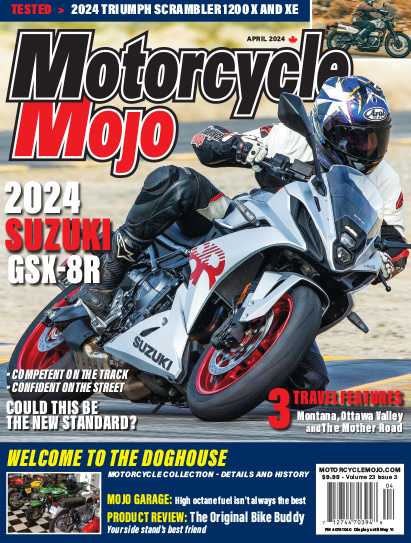Valentino Rossi should retire. In fact, he probably should have retired last year. I say that as a lifelong fan who still views 2015 as an injustice that has gone too long unpunished. Nonetheless, since even his recent visit to Jerez, a favourite track, offered no respite, it’s probably time for VR46 to move on.
The problem is simple: the old-timer hasn’t adapted to MotoGP’s new realities. Oh, he can drag elbows and knees with the best of them. He’s also learned how to manage carbon fibre discs, hole-shot with the best of ’em and fiddle with traction-control mapping at full throttle. What he has not learned to do is manage Michelins. Unfortunately, that seems the most important job for a MotoGP rider these days.
Indeed, not so very long ago, we used to be guaranteed that the winner of a grand prix was the best combination of man and motorcycle. Oh, to be sure, rider and team had to work with the rubber they rode on and some years Dunlop, say, had a distinct advantage over Michelin. Then, the following year, the roles reversed. Nonetheless, in general, tire technology was adaptable and it was man’s mastery of machine that was the difference between winning and losing.
No more. Now, tire management is the predominant determiner of champion versus chump, even overshadowing – and, yes, I know this seems like an outrageous statement – the age-old question of inline fours versus Vs.
The fact is that in this era of controlled tire, one either gets along with Michelin or one spends time at the back of the pack. Rossi, for example, has always preferred a stiff rear tire – I remember keenly his ability to manage hard rear Bridgestones at the beginning of a race and then zap the competition at the end – but he has been left wandering the proverbial racing desert since Michelin came in with its softer, grippier rear rubber.
In fact, the entire balance of MotoGP bikes has been flipped on its ear since Michelin took over from Bridgestone as MotoGP’s favoured tire marque in 2016. As countless riders opined at the time, the outgoing Bridgestones were all front-endy, the Japanese front tire famed for its incredible tenacity. Even Marc Marquez, the latest braker of them all, marvelled at how “you can just keep loading the front Bridgestone.” The problem for Rossi is that while a young and still impressionable Marquez could adapt to the new Michelins, Rossi has proven very much an old dog that can’t learn new tires.
But, were this just a tale of one old man and his inability to adapt, it would be just be another case of tough noogies. Unfortunately, the problem is that the same issue afflicts the teams’ engineers and, by extension, the motorcycles they produce. One year, your bike’s chassis and suspension melds with whatever rubber Michelin worked on over the winter; the next, it does not. In 2019, things were looking promising for Ducati, with Andrea Dovizioso finishing second to Marquez for the third time running.
In 2020, Michelin revised its rear tire, and what had promised to be Dovizioso’s year – Marquez was, of course, rehabbing – went into the dumpster. Ducati’s GP21 is, in Francesco Bagnaia’s own words, barely changed from 2020 – and yet, No. 63, completely lost last year, is now leading the world championship. Does anyone really believe, as Bagnaia professes, that the difference is the good thoughts he had over the winter? Or could it be that the Ducati jells with this year’s version of the Michelin rear better than last’s. Jack Miller winning the 2021 Jerez round after three fairly fruitless years on the Duke – and the first Ducati do so since 2006 – should put paid to that theory.
KTM, meanwhile, has followed up its breakthrough year – three wins and numerous strong showings – by beginning the season looking like the rookies they were four years ago. Even mighty Honda is having a harder time than usual in dealing with Michelins. And poor Suzuki, with a suspension that seems to get along with the French tires – although, I suspect, they have no idea why – dares not changing anything chassis-wise lest their unique relationship with Gallic rubber go down the sh!##er.
What makes this worse is the design process in MotoGP. Manufacturers work all year long to design next year’s motorcycle, and then, once it’s complete, they go to the first test of the year in Qatar. Only then do they get to see if all their travails jell with whatever new tires Michelin has developed – that would be Ducati this year – or are they going to chase their tails for the first eight races – as KTM and Honda seem to be doing – before figuring out how to make their new chassis work with the Michelins.
Back in the old days, if your bike didn’t mate with a certain manufacturer’s rubber you simply moved on – Lorenzo and Rossi were on different tires while both were at Yamaha. And when you did pick a tire manufacturer, they worked with you so the tire – fairly easily modified – was changed to match the frame (not so quickly altered). Now, it’s the diametrical opposite, with motorcycle manufacturers scrambling to change entire motorcycles so they might mate better with the tire.
Motorcycle manufacturers agreed to the idea of a single tire supplier in 2009 because it would cut costs. Riders welcomed it because they thought it would create an even playing field. Instead, what they got was a crapshoot, the tires becoming the fulcrum and the entire motorcycle changing to suit. That, my friends, is a tail that should not be wagging the dog.










